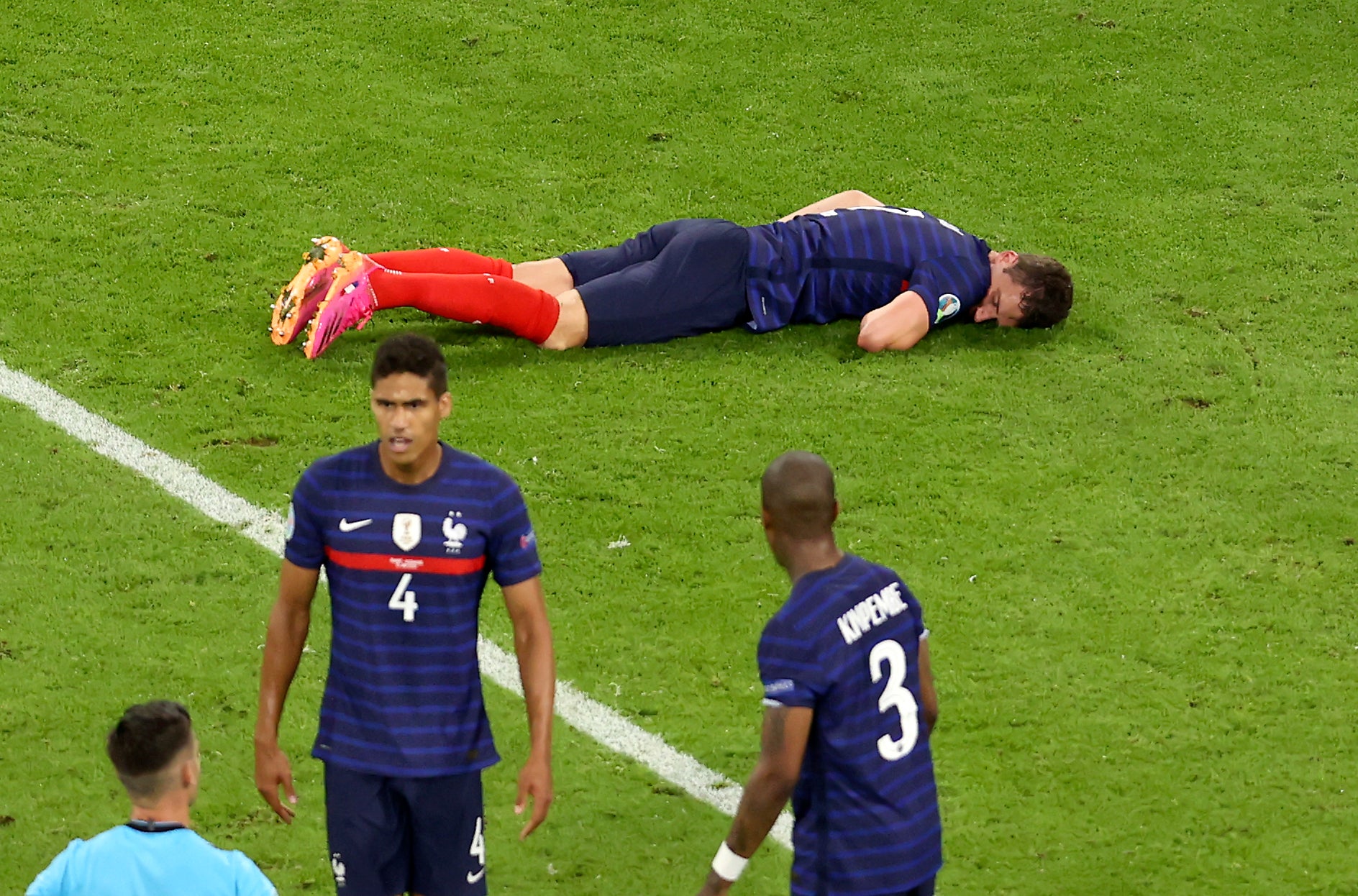Uefa satisfied Benjamin Pavard treatment was in line with concussion protocol
The Bayern Munich player collided with Germany’s Robin Gosens.

Your support helps us to tell the story
From reproductive rights to climate change to Big Tech, The Independent is on the ground when the story is developing. Whether it's investigating the financials of Elon Musk's pro-Trump PAC or producing our latest documentary, 'The A Word', which shines a light on the American women fighting for reproductive rights, we know how important it is to parse out the facts from the messaging.
At such a critical moment in US history, we need reporters on the ground. Your donation allows us to keep sending journalists to speak to both sides of the story.
The Independent is trusted by Americans across the entire political spectrum. And unlike many other quality news outlets, we choose not to lock Americans out of our reporting and analysis with paywalls. We believe quality journalism should be available to everyone, paid for by those who can afford it.
Your support makes all the difference.UEFA says it has been satisfied by the French federation’s medical staff that full-back Benjamin Pavard did not suffer concussion or lose consciousness during his country’s Euro 2020 match against Germany on Tuesday night.
Pavard said after the game he had been “a little knocked out for 10 or 15 seconds” following a second-half collision with Germany’s Robin Gosens.
World players’ union FIFPRO demanded answers from UEFA over what it saw as France’s failure to follow the tournament organisers’ Concussion Charter, while France’s handling of the incident was described as “sickening to watch” by Peter McCabe, the chief executive of brain injury charity Headway.
However, a statement from European football’s governing body on Thursday read: “UEFA has received detailed information from the French FA medical team on the course of events and is satisfied that the actions taken by the medical team were in line with the concussion protocol.
“According to the reports that we received from the team doctor, it seems that a loss of consciousness did not occur. The team doctor did not find any reason to suspect a concussion either on the pitch or after thorough assessment made by a renowned specialist in this field in later follow-up.
“The player will nevertheless continue to be closely monitored over the coming days.”
The statement added: “All 24 teams committed to follow the recommendations of the UEFA Concussion Charter before the start of the tournament and the responsibility for decision-making remains with the team doctor.
“If the team doctor has any doubts about unconsciousness or signs of concussion, he should remove the player from the field. The team doctor is the ONLY person who can take the decision for the player to stay on the pitch or be substituted. The team doctor’s decision must always be respected, even if the player or the coach believes that the player is fit to continue.”
UEFA is not trialling permanent concussion substitutes at Euro 2020, deciding instead to trial that at its European Under-21 Championship which finished earlier this month.
The Concussion Charter was announced by UEFA last week, and covered baseline neurological testing of all players and the provision of a video review system to team doctors.
McCabe was unimpressed by France’s handling of the incident and said: “It was plain for all to see that Pavard was unable to protect himself from the fall. Pavard’s later statement that he lost consciousness confirms the seriousness of the incident.
“We have continuously been told that football’s concussion protocols are fit for purpose and that temporary concussion substitutes are not necessary.
“But here we have yet another example where it is simply not credible to suggest that a concussion could not be ‘suspected’ or a possible consequence of the impact. However, after a brief on-pitch assessment the player was allowed to continue.
“Furthermore, it appeared that the referee was attempting to speed up the medical team and usher them and the player off the pitch, rather than allowing them the time they needed to assess the seriousness of the injury.
“Why is it so hard for football to accept it has got this wrong and follow the example set by other sports by introducing temporary concussion substitutes?”
FIFPRO and the English union, the Professional Footballers’ Association, wrote to the game’s law-making body the International Football Association Board in April asking it to extend the scope of its trials to cover temporary concussion substitutes.
The letter warned that the current protocols had “jeopardised players’ health”.